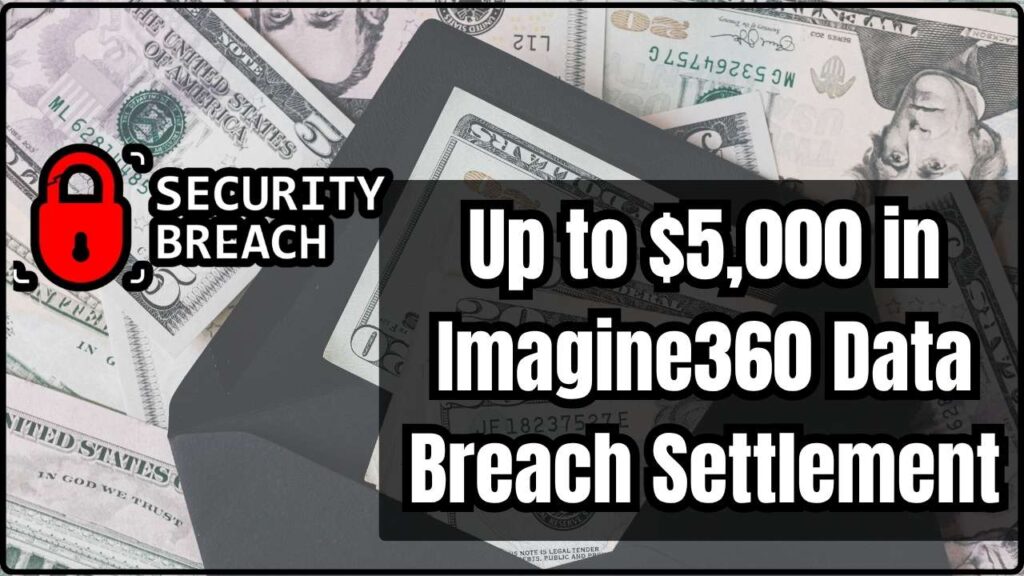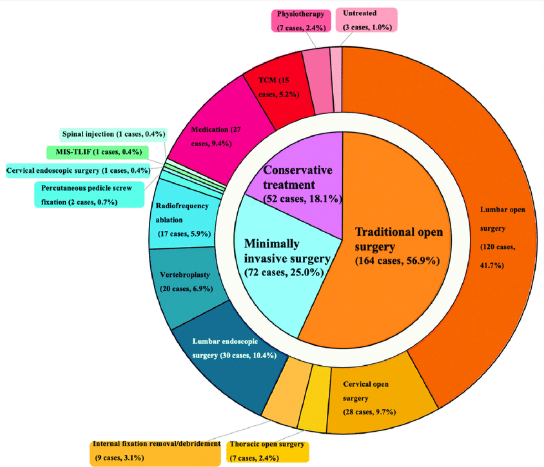
A class-action settlement with Imagine360, LLC offers financial compensation and free credit monitoring to individuals affected by a 2023 data breach that exposed personal and medical information. Eligible U.S. residents may receive up to $5,000 for documented losses or a flat payment of about $75, depending on their claim type.
Table of Contents
Imagine360 Data Breach Settlement
| Key Fact | Detail |
|---|---|
| Settlement Fund | $475,000 total amount allocated for all eligible claims. |
| Maximum Individual Payout | Up to $5,000 for documented expenses or about $75 flat payment. |
| Claim Deadline | July 31, 2025. |
| Final Approval Hearing | August 15, 2025. |
| Information Exposed | Names, Social Security numbers, health insurance and medical information. |
| Free Benefits | Three years of credit monitoring for all approved claimants. |
Background: The Imagine360 Breach
The Incident
On January 30, 2023, Imagine360 detected unauthorized access to its file-sharing platform. The company, which manages health-plan administration and telemedicine services for self-funded employers, reported that hackers had gained entry into certain systems storing sensitive data.
The breach potentially exposed the personal and health-related information of more than one hundred thousand individuals. This included names, Social Security numbers, health insurance details, and some medical information.
Imagine360 notified federal and state regulators and later informed affected individuals by mail. While the company said it acted quickly to secure its systems, plaintiffs in the lawsuit argued that Imagine360 failed to maintain reasonable cybersecurity safeguards and delayed disclosure of the breach.

The Lawsuit
In February 2025, a class-action lawsuit titled Collins v. Imagine360, LLC was filed in Florida state court. The plaintiffs claimed the company’s security failures violated privacy laws and contractual obligations. Allegations included negligence, breach of implied contract, and unjust enrichment.
Imagine360 denied all wrongdoing but agreed to settle the case to avoid the costs and uncertainty of extended litigation. The settlement does not represent an admission of liability.
Settlement Details
Compensation Options
Under the settlement, class members can choose between two cash payment options:
- Documented Losses – Up to $5,000
Individuals who can show proof of financial harm caused by the data breach may claim up to $5,000. Acceptable documentation includes receipts, bank statements, invoices, or bills for expenses such as:- Bank or credit-card fees
- Long-distance or data-usage costs
- Travel expenses incurred to manage identity issues
- Fees for credit monitoring or identity-theft protection
- Time spent resolving fraud (compensated at an hourly rate defined in the settlement)
- Flat Cash Payment – About $75
Claimants who do not have documentation may opt for a flat cash payment, estimated at approximately $75. This option provides a simpler way for affected individuals to receive some compensation. - Credit Monitoring
All approved claimants are eligible for up to three years of free credit monitoring, regardless of the cash-payment option selected. The service includes alerts of suspicious activity and access to identity-restoration assistance.

Deadlines and Conditions
- Claim Submission: Must be submitted online or postmarked by July 31, 2025.
- Exclusion Requests: Individuals wishing to opt out of the settlement to retain their right to sue separately must do so by July 16, 2025.
- Objections: Any objections to the settlement terms must also be filed by July 16, 2025.
- Final Court Approval: A hearing is scheduled for August 15, 2025. Payments will be distributed within roughly 75 days of final approval.
If many claims are filed, individual payouts may be adjusted proportionally, since the total fund is capped at $475,000.
Eligibility Criteria
To qualify for payment, you must:
- Reside in the United States, and
- Have received a notice from Imagine360 stating that your personal information may have been affected by the January 2023 data breach.
Individuals who meet these criteria are part of the “Settlement Class.” Only those who file valid claims by the deadline can receive benefits.
How to File a Claim
- Locate the Notification Letter
Eligible individuals should have received a mailed or emailed notice from Imagine360. This letter includes a unique claim identification number. - Choose Your Option
Decide whether you will file for documented losses (up to $5,000) or take the flat payment (~$75). - Gather Evidence (If Applicable)
Collect receipts, bills, or statements that demonstrate expenses or time spent dealing with the breach. - Submit Your Claim
Complete the claim form online or by mail, including all required documentation and your unique ID. - Monitor for Updates
Keep an eye on communications from the settlement administrator. If your claim is approved, payment and credit-monitoring information will follow after court approval.
Why This Matters
Rising Threats to Healthcare Data
The healthcare sector remains one of the most targeted industries for cyberattacks. Personal health information (PHI) has a high value on criminal markets because it can be used for identity theft, fraudulent insurance claims, and tax-related scams.
Cybersecurity experts note that breaches involving health-plan administrators and third-party vendors have grown steadily in recent years. Many organizations now rely on cloud-based systems that, if misconfigured or inadequately protected, can be exploited by hackers.
Accountability and Legal Pressure
The Imagine360 case underscores the growing legal and financial pressure on healthcare companies and their contractors to protect sensitive information. Even when companies deny wrongdoing, settlements like this one reinforce the message that inadequate cybersecurity carries legal consequences.
Regulatory agencies such as the Department of Health and Human Services and the Federal Trade Commission have also increased enforcement actions against organizations that mishandle personal data. Companies are now expected to demonstrate proactive risk management, regular system testing, and vendor oversight.
Consumer Impact and Expert Insight
Legal analysts emphasize that individual compensation in such settlements is often modest, but the symbolic and preventive effects are significant. Class actions help establish accountability standards and pressure companies to invest in stronger data security.
Cybersecurity consultant David Heller explains:
“The actual payout for most claimants may be small, but these cases serve a critical purpose. They remind organizations that protecting consumer data is a legal duty, not just an ethical one.”
Privacy advocate Dr. Anya Sharma adds:
“Health data is deeply personal. Even a single exposure can have long-term consequences, from insurance fraud to emotional distress. Settlements like this one reinforce the need for stronger protections and transparent disclosure.”
For Imagine360, this agreement represents both a legal resolution and a reputational challenge. The company has reportedly increased its cybersecurity measures and pledged to enhance employee training and network monitoring practices.
Practical Guidance for Affected Individuals
Even if you do not file a claim, taking the following steps can help protect your identity and finances:
- Monitor Credit Reports
Obtain free credit reports from the three major bureaus—Equifax, Experian, and TransUnion—via AnnualCreditReport.com. - Use Credit Monitoring
If you are eligible for the settlement’s free monitoring service, enroll promptly to ensure coverage begins without delay. - Review Insurance Statements
Check your medical bills and insurance statements for unfamiliar services or charges. - Consider Fraud Alerts or Freezes
A fraud alert notifies lenders to verify your identity before opening new credit accounts. A credit freeze blocks most new accounts entirely. - Stay Alert for Scams
Be wary of calls or emails claiming to be from settlement administrators or credit agencies requesting fees or sensitive information. Official administrators will never ask for payment to process claims. - Keep Records
Document any unusual financial activity. If fraudulent charges appear, contact your bank or credit-card company immediately and file a police report if necessary.
Wider Implications
This settlement adds to a growing list of class-action resolutions involving data breaches in the healthcare industry. Experts say the cumulative effect is reshaping industry standards and consumer awareness.
Cyber insurance providers have reported increasing demand for policies covering data-breach liability, while state legislatures are considering stricter data-protection laws.
For employers who rely on third-party benefits administrators like Imagine360, the case serves as a cautionary reminder to review vendor security protocols and incident-response procedures.
The Road Ahead
The court is expected to issue final approval of the settlement in August 2025. If approved, payments will be distributed within roughly two to three months. Claimants who filed timely and complete claims can expect notification by mail or email regarding payment and credit-monitoring enrollment.
Imagine360 has stated that it is committed to ongoing security improvements. While the company has not disclosed specific technical measures, it has confirmed that it enhanced employee cybersecurity training and updated its incident-response procedures following the breach.
For affected individuals, vigilance remains essential. Even years after a breach, exposed information can resurface in fraudulent activities. Regular monitoring, safe online practices, and awareness of future data-breach notifications are key to protecting one’s identity.
$425M Capital One Settlement – Here’s How to Claim Before It’s Too Late
$5,000 Wells Fargo Settlement Payout – Key Dates, Eligibility, and How to Receive Your Money
Cash App Payout Up to $147: How to Claim Your Share of the $12.5 Million Settlement
Expert Perspective on Future Trends
As data breaches grow more frequent and costly, privacy specialists predict that similar class actions will continue to rise. Organizations in healthcare, finance, and education are particularly vulnerable.
Attorney Linda Perez, who has represented plaintiffs in several cybersecurity cases, notes:
“Settlements like Imagine360’s are part of a larger movement toward holding companies accountable. The value is not just in compensation, but in forcing systemic improvements to prevent future breaches.”
Cybersecurity professor Mark Reynolds of the University of Michigan adds:
“The real story isn’t the dollar amount—it’s the recognition that even mid-sized vendors are targets. Cybersecurity is now a collective responsibility across entire service chains.”
Final Outlook
The Imagine360 settlement reflects the broader reality that no organization handling sensitive data is immune from cyber risk. For affected consumers, it offers limited financial relief but valuable protections such as credit monitoring and identity-restoration support.
For companies, it highlights the need for continuous investment in security



















